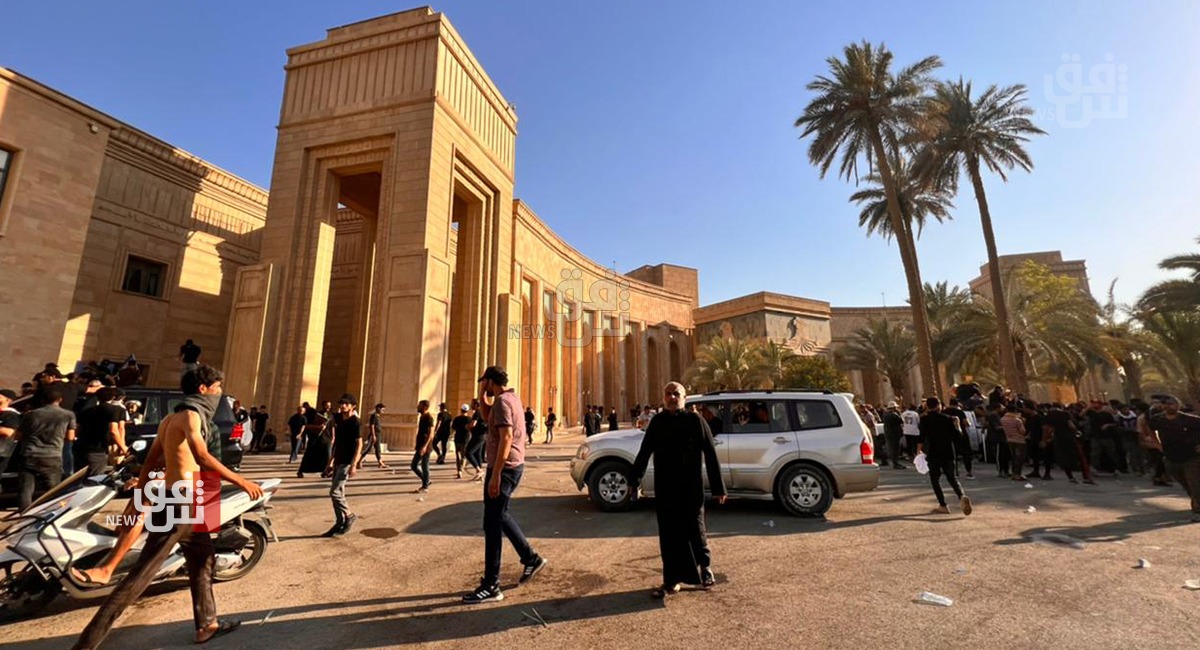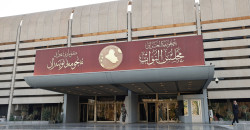"A year of political impasse": Guinness World Record welcomes Iraq

Shafaq News / It has been an entire year since the Iraqis went to polls in the sixth parliamentary election since the overthrow of Saddam Hussein in 2003. Doing that, the war-scarred country broke the world record, which it has carried under its belt since 2010, for the longest run without a government. A long year of heated standoffs, street wars, demonstrations and counterdemonstrations, and bloodshed was not enough for the leaders, who disenchanted Iraqis rose against the protests that triggered the early election on October 10, to find common ground and form a government, any government.
Iraqis are known for starting political debates when they get together, so it is normal for such talks to prevail if a political crisis consumes their day and night.
Abu Wissam, an employee in one of the state ministries, meets every evening with a few of his neighbors to play backgammon and to talk about "life".
He stated, "a year has passed with government-related crises resurfacing daily", adding, "the last thing they (politicians) came up with is the inability of Iraq to act economically after (31/12/2022), and the lack of a budget, which will undoubtedly affect us employees who, like the rest of Iraqis, do not know the fate of the country and where it is headed."
A cab driver who frequents this group remarked jokingly, "We must truly appreciate what we have accomplished. One year with no government. This is a triumph for the ruling political class, which forced its people to live in a gap for a whole year, and the worst is yet to come.
"The other dilemma is that, if a government is established, it will almost certainly run into more problems and, in the worst-case scenario, may opt to dissolve itself rather than take action."
Abbas, a political science student, stated that "After a full year, the political stalemate began to affect Iraq and hurt all aspects of society. However, we have learned to adapt due to the frequent crises we confront, and we are doing so since tomorrow is likely to be even worse due to the political class's narrow self-interest."
"How can the nation's leaders ignore all of the appeals, cautions, and worldwide efforts to advise Iraq against failing to establish a government? The most recent is UN Ambassador Jeanine Hennis- Plasschaert, who warned that the country might be placed under guardianship. So why do they ignore Iraq's imminent threat and bury their heads in the sand like ostriches?"
Rua'a Essam, Abbas's colleague, agrees, "The ruling class must accept reality and resign from office since it is the root of the issue. Unfortunately, it cannot deliver anything to the Iraqi people, who have already endured enough tragedies."
"A year of failure in the absence of a government. A government that will also fail if constituted. It is a shame that we are living amid this never-ending war anxiety only to build a government that may or may not last. Politicians are the only ones who benefit in this system, while the people suffer greatly."
"I started to worry about studying because we never know what tomorrow will bring."
"It is all ruined." With this simple remark, a rose vendor rushing to earn a living among the traffic expressed the extent of the Iraqi street's dissatisfaction with the situation in light of this crisis, which appears to be ongoing for the foreseeable future.
Iraq enters Guinness Book of Records
Iraq began the longest period of political deadlock on Thursday, July 28, 2022, following the elections and the failure to form a new government. This was a longer wait than in 2010 when former Prime Minister Nouri al-Maliki was appointed.
According to a Reuters report at the time, "more than nine months after the holding of elections in October, the legislators tasked with choosing a president and a prime minister did not come close to agreeing on anything, setting a record period of 290 days without a president or government," noting, "the longest previous period without a government in Iraq was in 2010, when 289 days passed before Prime Minister Nouri al-Maliki took up a second term."
After 366 days without creating a new government, the records are only broken by the current political elite, with a year of "failure" to form a government.
Hennis-Plasschaert warns; guardianship looms on the horizon
On October 4, 2022, UN envoy Jeanine Hennis-Plasschaert gave a briefing to the UN Security Council on the situation in Iraq.
She emphasized that differences trump dialogue, that armed conflicts are occurring in the southern governorate, and that the political class is powerless to stop the crisis.
She additionally said that "The people's patience is wearing thin. Many Iraqis no longer have faith in the political elite's capacity to act in the nation's and its citizens' best interests."
"Iraq's issues can escalate if this loss of trust is not addressed immediately. It is urgent for Iraq's political leaders to overcome divisions, to put aside partisanship, and to bury personal vendettas."
"The country's political system disregards the Iraqi people's demands. A significant core reason for Iraq's dysfunction is its pervasive corruption; no leader may assert that they are shielded from it. Maintaining the system as it is will bounce back with unfavorable results."
With the briefing, Iraqi politicians warned against foreign trusteeship over their country.
This trusteeship regime applies to nations that are deemed to be "under sovereign" per international law, and who, in certain circumstances, are bound by a contract whose execution is overseen by the UN Trusteeship Council.
The system of international trusteeship was an alternative to the Mandate system that had been in place during the League of Nations' reign, which had been replaced by the United Nations in 1945, in order to settle the status of colonial Powers per a United Nations legal legitimacy that would gradually move them from a situation of full colonialism to a transitional status followed by full independence.
These events and domestic unrest followed the "failure" of political efforts to end the political impasse, as the entire political process resulted in the election of Mohammed al-Halboosi as Speaker of the House of Representatives.
The elected parliament was overruled and entered a vicious cycle following the resignation of the Sadrist Movement deputies, including Hakim al-Zamili, the council's first Deputy Speaker.
Al-Halboosi also submitted his resignation, which was rejected by the Coordination Framework, the largest bloc following the departure of the Sadrist lawmakers. That rejection represented a fresh vote in favor of al-Halboosi to stay in office.
Muhsin al-Mandalawi was chosen as the first deputy speaker to succeed al-Zamili. In contrast, Shakhwan Abdullah remained as a second deputy, with a clear inability to reach a consensus on the candidates for the presidency of the republic and ministers despite the Framework's insistence on Mohamed Shia al-Sudani as a candidate.
Al-Sudani appears to have difficulty passing his portfolio or even remaining a candidate under the rejection of the Sadrist and Tishreen's followers.
Meanwhile, the attempts to storm the parliament are looming, and things may spiral out of control into an armed conflict between the opposing parties.





